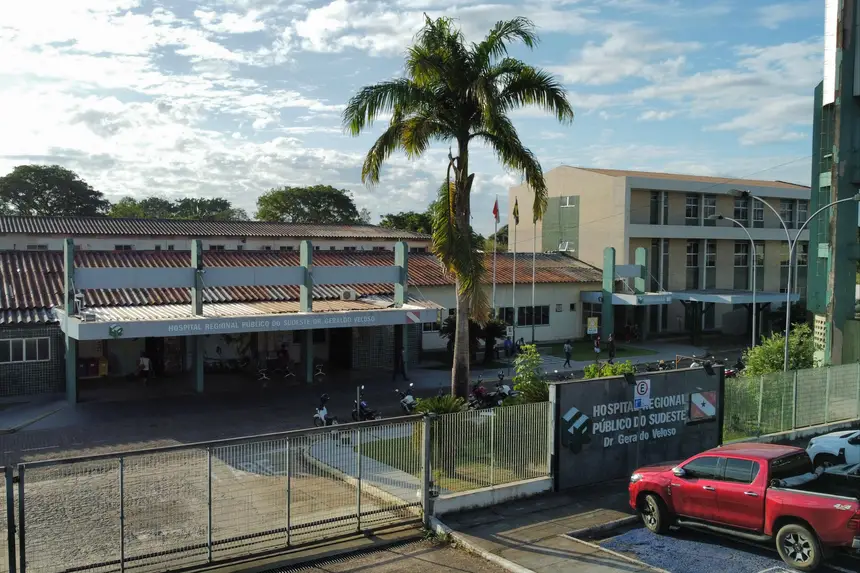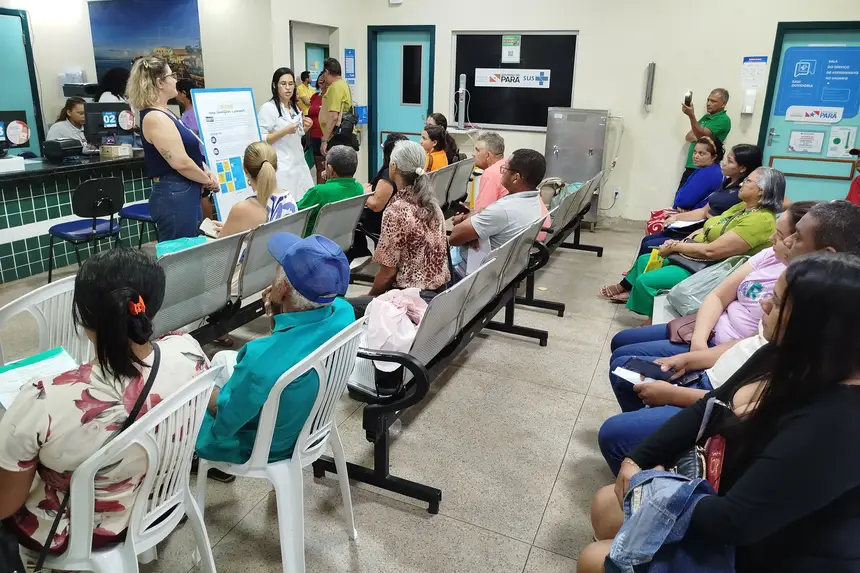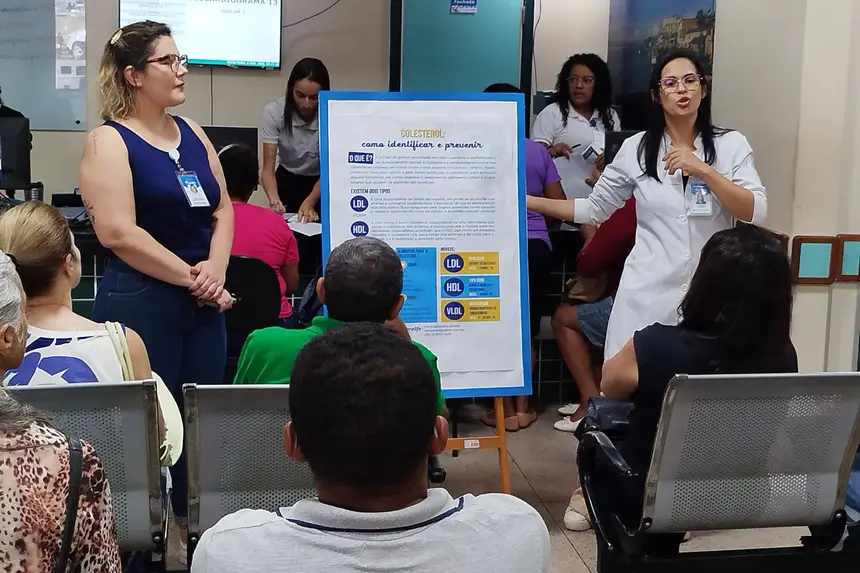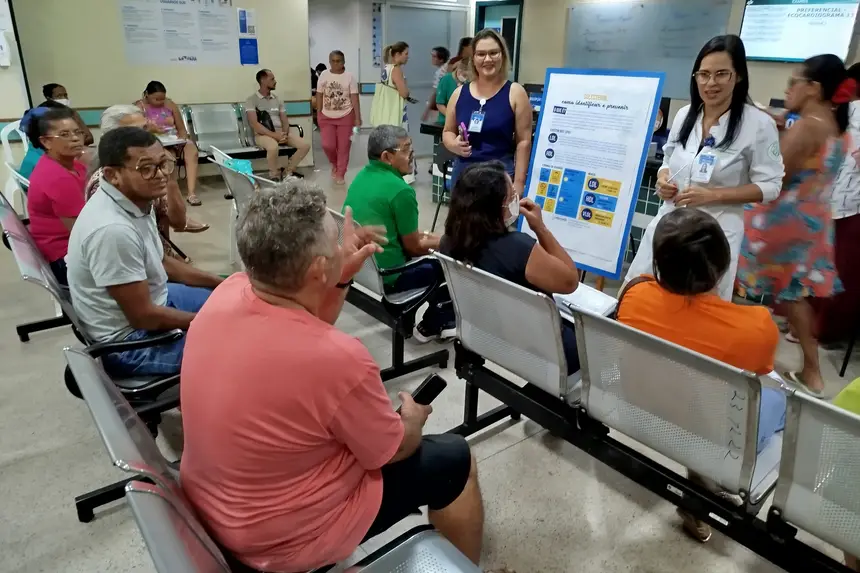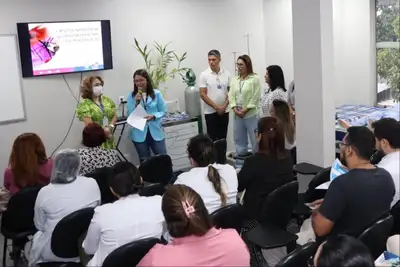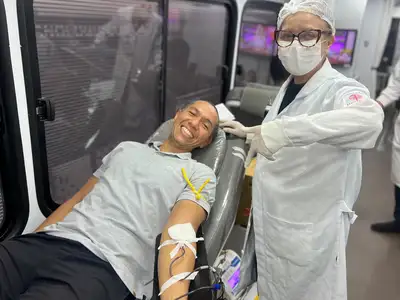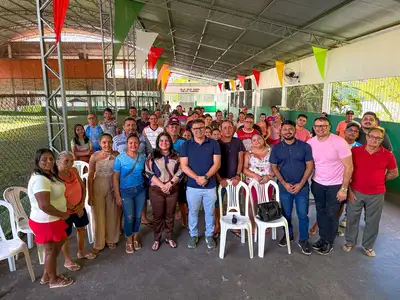In Marabá, Regional Hospital specialist warns about the risks of high cholesterol
Patients and companions received practical tips to protect heart health and quality of life
The Regional Hospital of Southeast Pará – Dr. Geraldo Veloso (HRSP) held, this Wednesday (13), another edition of the Health in Focus project, aimed at raising awareness among patients and companions about the risks of high cholesterol, highlighting how prevention and regular monitoring can prevent serious cardiovascular diseases.
Maria de Lourdes Silva, 45 years old, a resident of Marabá, in the Carajás region, referred to undergo a radiography exam at the unit, reported that the action provided valuable guidance. "I had no idea that foods I frequently consume could raise cholesterol levels. I will be much more careful now about what I put on my plate," she emphasized.
According to the Brazilian Society of Cardiology (SBC), about 40% of the adult population in the country has cholesterol levels above the recommended, and more than 25% of children already show elevated levels. As it is a silent condition, high cholesterol, if not identified and treated early, can lead to serious complications.
Antônio Carlos, 39 years old, a resident of Marabá, who was waiting for an appointment with the orthopedic doctor, said that the lecture served as a warning. "I learned that you don't have to be obese to have high cholesterol. Many times we think everything is fine just because we are maintaining our weight, but we don't realize that our diet may be harming our health. Now I want to take better care of what I consume and get tested more frequently," he stated.
The Health in Focus Project, developed by the humanization sector of the Pará Government unit, aims to transform the waiting time in the hospital into an opportunity for care and learning. The initiative provides information in a simple and accessible way, contributing to humanizing care and raising awareness among the population about the importance of prevention and continuous health care.
Awareness - The lecture was conducted at the Regional Hospital of Marabá by the unit's nutritionist Aline Assunção, a specialist in chronic diseases, who explained in simple terms which types of cholesterol are harmful to health. According to her, VLDL and LDL, known as "bad cholesterol," appear more frequently when there is an excess of fried foods, fatty meats, processed meats, and industrialized foods in the diet.
"To maintain balanced cholesterol levels, the path is clear: create a colorful plate with fruits, vegetables, and legumes; include fibers like oats, beans, and flaxseed; swap fried foods for baked or grilled options; prefer lean cuts and low-fat dairy; reduce ultra-processed foods, processed meats, and excess sugar; engage in physical activity and maintain good hydration. And have periodic exams: they show if we are on the right track and help adjust care when necessary," the nutritionist advised.
Aline also warned that the accumulation of "bad cholesterol" in the arteries can pose serious risks to the body. "When LDL and VLDL deposit on the walls of the arteries, they form fat plaques that hinder blood flow. Over time, this can lead to high blood pressure, stroke, or other serious cardiovascular diseases. Therefore, prevention is always the best path," she emphasized.
The professional also highlighted that, in addition to avoiding "bad cholesterol," it is important to stimulate HDL, known as "good cholesterol," which helps clean the arteries and protect the heart. "Fish like salmon and sardines, olive oil, nuts, and avocados are great allies to increase HDL and maintain balance. The secret is to seek harmony in your diet and adopt habits that favor long-term health," she concluded.
Daiane Dias Uszynski, humanization analyst at the unit - managed by the Institute of Social and Environmental Health of the Amazon (ISSAA) and the State Department of Public Health (Sespa) - emphasized that the initiative was designed to reinforce the importance of prevention and continuous care for cardiovascular health.
"August marks World Cholesterol Awareness Day (8), and we took this date to raise awareness about the risks of bad cholesterol, encouraging healthy choices that contribute to a longer and higher quality life," she stated.
Service: Care at the Public Regional Hospital of Southeast is 100% free, provided through the Unified Health System (SUS). The unit has 135 beds, including 97 for clinical hospitalization and 38 for Intensive Care Units (ICUs).



